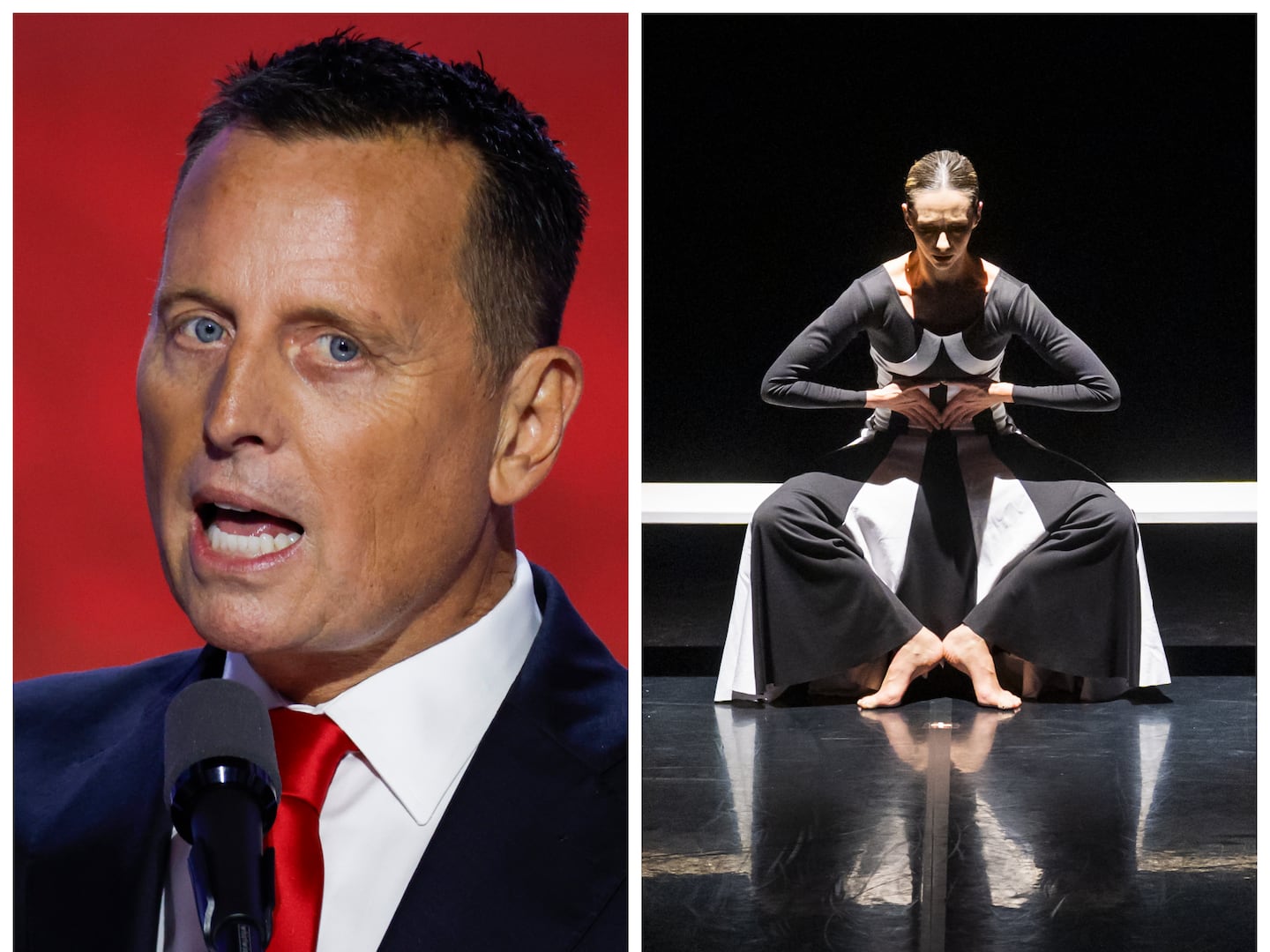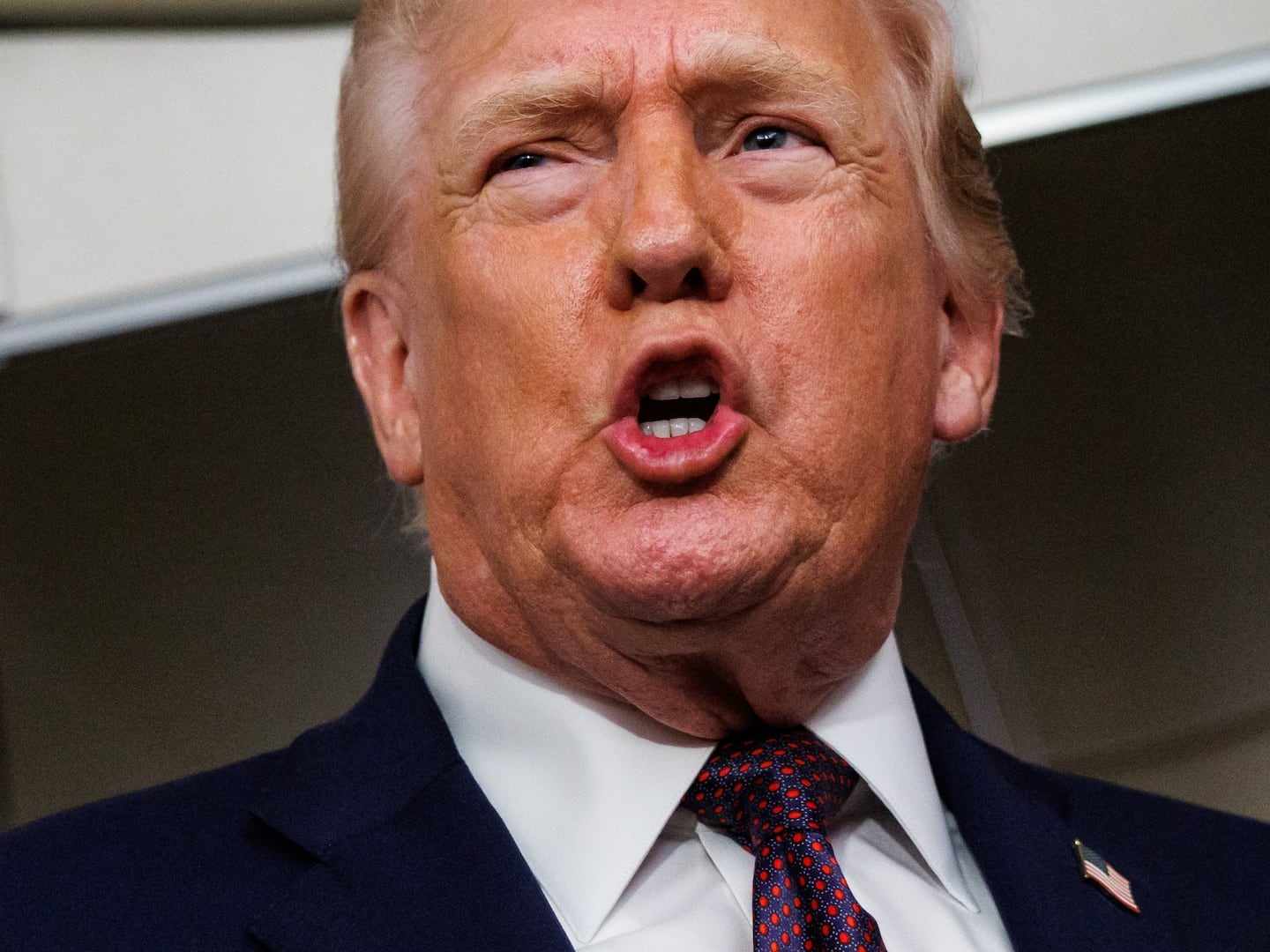“You gotta separate the personal life from the work,” Jerrod Carmichael says as his fictional alter-ego in Sunday night’s episode of The Carmichael Show. “Talent trumps morals.”
It’s one volley in an astonishingly nuanced conversation about a topic that incites the kind of fiery passion that most have learned to steer clear of—let alone find humor in—lest you land yourself in the comedy burn ward: Is it OK to still laugh at Bill Cosby?
The title of the episode itself, “Fallen Heroes,” stokes the flames in its own right, but is all the more powerful when you view it as a reflection of Carmichael’s real-life sentiments on the subject.
In 2014, before Carmichael’s breakout HBO stand-up special Love at the Store aired, Carmichael was, as Vulture characterized it, “summoned” by Cosby to the comedian’s house. The subtext was that Cosby, then still reigning as comedy royalty, was knighting the up-and-coming performer. They discussed stand-up, television, career goals, and personal responsibility.
For a performer who not only grew up watching Cosby, but whose career was inspired by him, it was as meaningful an endorsement and personal moment as they come. (In subsequent interviews, Carmichael has even bragged about the quarter he stole from Cosby’s house.)
Fast-forward two years and the surfacing of 55 sexual assault allegations, and the value of that endorsement—and the effect that Cosby is allowed to have on a person’s life—has significantly changed.
It’s a self-examination that plays out over the course of a half-hour of The Carmichael Show, which, as it proved in its critically hailed first season last year, might just be the best—and certainly most ambitious—multicam sitcom on TV.
In the grand comedy tradition stretching from Norman Lear to Murphy Brown, a tradition that has gotten significantly less noble and far more farts-and-sex-jokes saturated, The Carmichael Show has tackled real issues ranging from the Black Lives Matter movement to Caitlyn Jenner’s transition.
In a multicam, laugh-track format that has become allergic to such serious discussion, The Carmichael Show manages to skirt the sappy Very Special Episode trap—the one that soundtracks the jackhammering of a “point” with the saccharine pangs of soft piano tinkles—and present a conversation about these things we’re all discussing in our own lives as—get this—a conversation.
And not one person’s point is punctuated by the word “Bazinga.”
Speaking to The Daily Beast last year ahead of The Carmichael’s Show premiere, Carmichael said, “These are conversations that we’re having. So why not have them on television?”
He talked about the power of the sitcom as a medium: “It can reflect very natural, very honest conversation and it can be a great stage for it. I’m just trying to get close to that. And shows have gotten so far away. This isn’t just me pointing my finger and saying, ‘Oh, these shows…’ We know what they are. We know what they’ve been and they’ve been watered down and we’ve been afraid of treating an audience like they’re smart. I don’t want to be afraid of that.”
And so on Sunday night, Carmichael publicly had the conversation that, because we’re afraid, we’ve only had privately. He had the Cosby conversation.
Like all great sitcom episodes, the setup was refreshingly simple. Jerrod buys tickets to see Bill Cosby to do stand-up and invites his girlfriend Maxine (Amber Rose Stevens), mom Cynthia (Loretta Devine), and dad Joe (David Alan Grier) to watch.
What follows is the funniest, most provocative debate about ethical responsibility, talent vs. the man, and Cosby’s legacy that we’ve seen yet—made all the more powerful because of the clearly personal questioning Carmichael had to explore himself.
The moral arbiter here is Maxine, who responds aghast that Jerrod would even think of supporting Cosby by attending his comedy show after all of the allegations that have been made against him.
“Let’s be honest, this is kind of his farewell tour,” Jerrod jokes, attempting to sway her.
“The ironic part is that you would have to knock me unconscious in order to see him,” Maxine says. “I wouldn’t take you without your consent, Maxine,” Jerrod responds.
The conversation evolves when Jerrod offers the tickets to his parents. Responding to Maxine’s incredulity that he could support Cosby now, Joe says, “Support? No. Enjoy. I’m not going to be a character witness for this man in court.”
Cynthia’s reckoning is the funniest—and, honestly, the realest, too. She knows that, on principle and as a woman, she can’t go. But, damn, she really wants to.
“Well, how many women is it up to now?” she asks leadingly. Quickly, the room erupts “55!” in unison. “Oh, that’s a high number,” Cynthia says. But then: “I shouldn’t go…right?” And later: “Is there an acceptable number by which someone could go to the show?”
But the episode isn’t just a tennis match on whether it’s appropriate to attend a Bill Cosby show. It’s a thoughtful examination of his entire legacy, and how we’re supposed to view his past accomplishments and the effect they had on an entire culture.
“The Cosby Show was so important,” Jerrod reasons. “It brought my family together. It made us realize we could go to college.”
Other creators plagued by personal scandals but whose art we still consume are brought into the mix, both to illuminate our hypocrisy but also put Cosby’s actions into a certain perspective.
Maxine regularly listens to Michael Jackson’s music. She went to see Blue Jasmine even after Woody Allen’s scandal broke. A hilarious—and quite tragic—joke is made about how much we’ve supported the laundry list of domestic abusers with the last name “Brown”: Chris, James, Bobby…
In the end, Jerrod and Joe leave to go to the show. Maxine and Cynthia stay behind. Different levels of guilt eventually plague them both: Joe skips the show entirely, Jerrod has a miserable time while he’s there.
“Congrats, Maxine, you ruined my idol for me,” Jerrod says. “I just want the guy who makes me laugh back…I don’t want to be immoral and support him. But I can’t forget all the good things that he’s done.”
That’s the cue for what might be the episode’s most provocative scene. The Carmichaels wax nostalgic about how great Cosby was.
They recount their favorite scenes and episodes of The Cosby Show, erupting in riotous laughter as they reminisce. Joe does a Cosby impression. You, watching at home, smile along, having been granted permission to oh-so briefly remember how much you loved—and maybe even still love—Cosby.
It’s a voice in the conversation that’s been missing.
“Fallen Heroes” doesn’t condemn Cosby. It doesn’t absolve him. It doesn’t bring the hammer down one way or the other on how we should view his legacy, what effect the allegations he’s facing should have on how we view him, or whether it’s OK to still laugh at his comedy, past or present.
Carmichael isn’t giving his fallen hero a free pass. He’s not pushing his point of view on us either, because maybe he’s not entirely sure what it is yet.
It’s tempting to read into the last line in the debate—“Damn shame what he did to all those women, though”—as a directive to the audience, signaling Carmichael’s final stance. But that betrays the audaciousness of The Carmichael Show, which over its short run refuses to shame a perspective, the same way it is hesitant to hail one opinion as the “right” one.
It would minimize the effect of the episode to think that it ends in moralization. The show’s strength is its comedic questioning, not in punchlines disguised as answers—because maybe there isn’t one.
Is it OK to laugh at Cosby? Your answer, the show says, is as good as mine.






